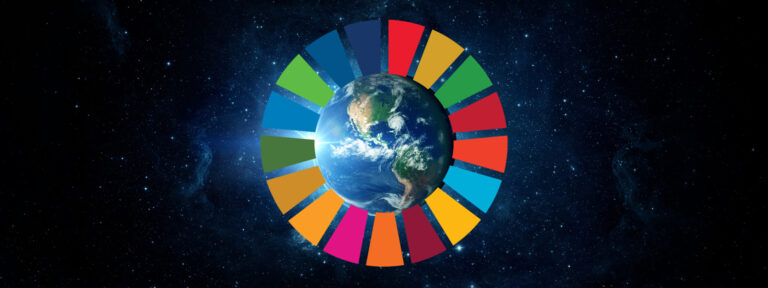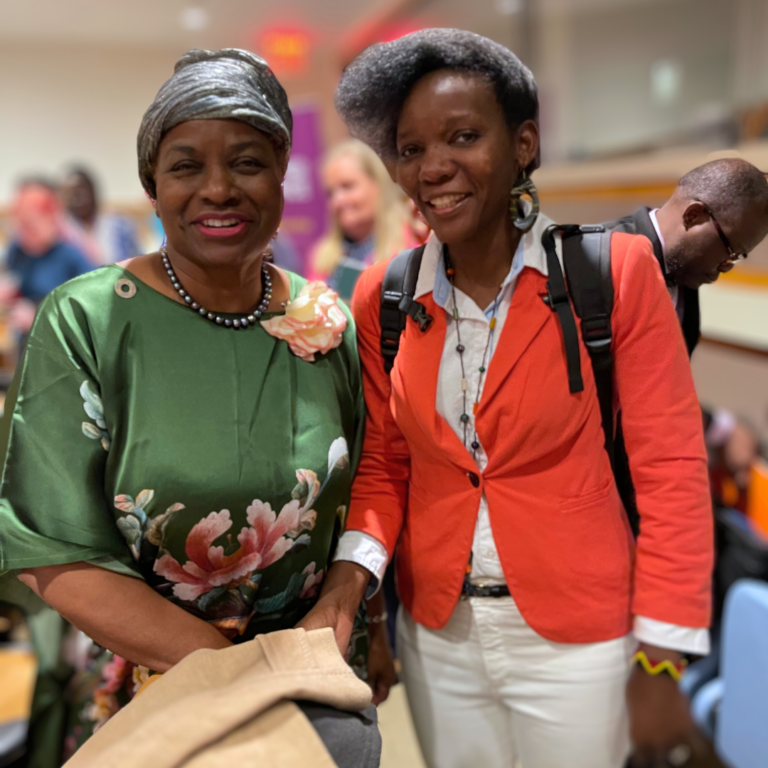
We cannot wait for solutions: Choice ambassador Nyombi Morris at the UN
Last month, Population Matters participated in the UN’s Commission for Population and Development session in New York. Our delegation was made up of Communications Specialist Florence Blondel and environmentalist and Choice Ambassador Nyombi Morris from Uganda. Here, Nyombi gives his personal views on the event.
Much happened and many things were spoken at CPD56, but one or two things stand out for me, such as the tale presented by Eliya Zulu of the African Institute for Development Policy in the End Triple Threat side event. Eliya (a friend of Population Matters) told the story of Malaika, a 14-year-old girl from Mandera, Kenya, who is one of six children living in a rural area. Her family is poor and vulnerable to health, economic, political, and environmental shocks.
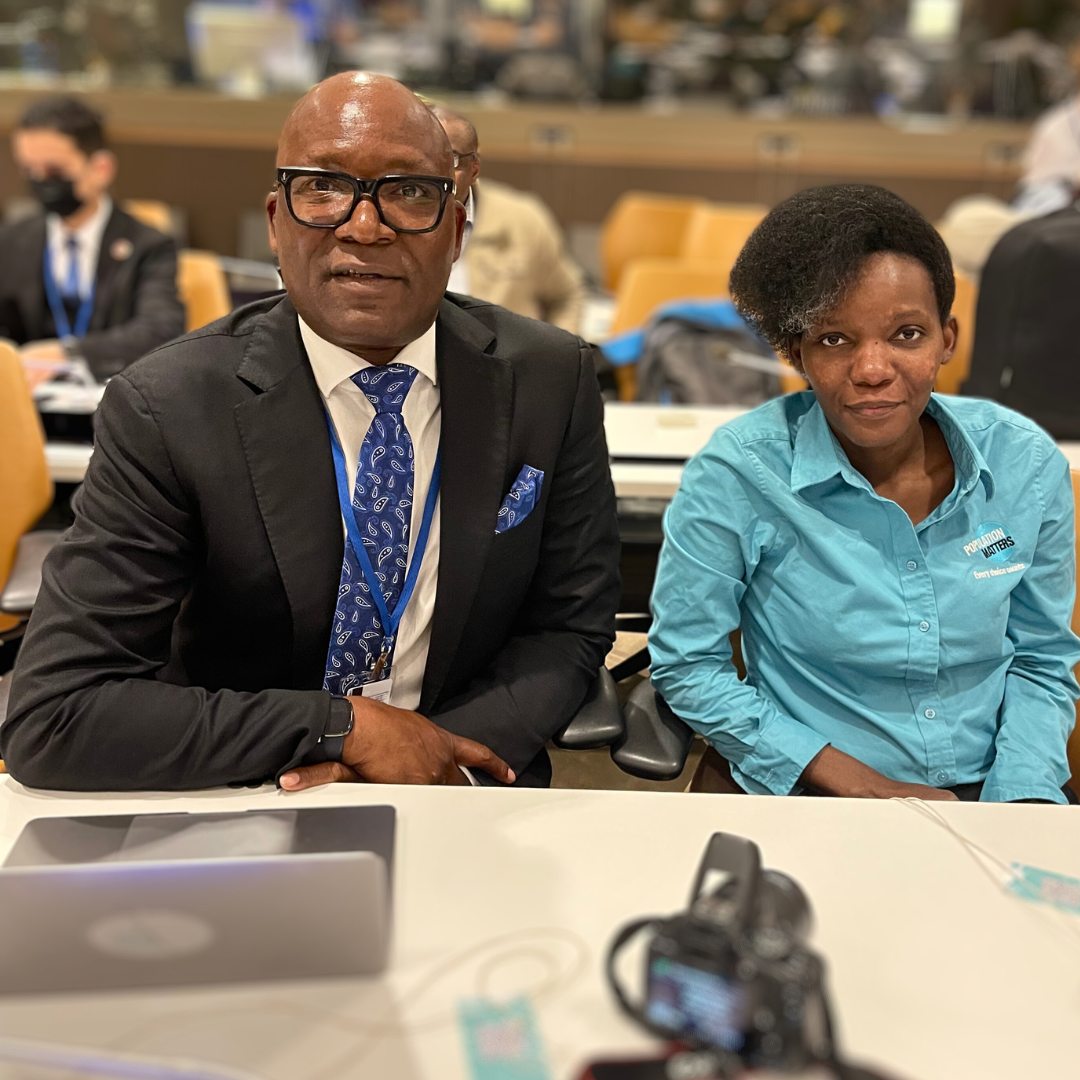
She has a one-in-four chance of becoming pregnant during adolescence, which will then lead to early marriage, and she will drop out of school before reaching secondary school. Her status results from individual, household, community, and systemic factors, which must be addressed holistically to achieve decisive change and empower her to help drive Africa’s demographic and gender dividend.
It was very powerful when he asked everyone in the room to think about Malaika as their daughter from their country. And the top six solutions mentioned here were:
- Addressing drivers of early marriage and unintended pregnancy
- Enabling effective legal, political, and policy frameworks
- Creating an enabling economic environment
- Strengthening healthy systems
- Investing in education and skill development
- Increasing resilience to the planetary crisis
Regardless of how powerful this tale was, I was left unsatisfied with the path forward, because while everyone in the room vowed to go back and mobilise their leaders to do something, there was no target set for each individual who promised.
No time to wait
What causes this kind of event to fail is when they plan another one without disclosing the previous one’s achievements. There have been 56 Commissions on Population and Development sessions: 56 years is a long time. We cannot wait for CPD100 for each of us to improve, provide evidence, or come up with solutions to improve the lives of the world’s underserved population when the number keeps going up; every kind of solution is with us, but we are too slow to act.

Also, there was a lack of inclusivity; I only saw one person who had been a victim 15 years ago, which made me wonder how we will ever overcome this issue of gender inequalities when the people who matter are not in the room. The young people we are attempting to lobby for can also be a powerful motivator for our leaders to take action through storytelling and this was the best place to confront the leaders. When they return home sometimes it is hard to access their offices unless you are a VIP…
Today, I can tell you about my sister’s experience after giving birth at such a young age, but no one can tell her story better than she can. We need more young people in the room, especially women and girls, and the conversation should be open to them, helping them to understand why their potential and oppportunities are so much more than just becoming a mother. They can be the Kamala Harris’ of this world, they can be like Samia Suluhu Hassan the president of Tanzania, but all that requires sacrifice. So giving them a seat at the table will not only motivate them but also help them build confidence in openly sharing their stories without fear.
making the investment
A Nigerian delegate talked about money, saying that we should put our money where our mouth is, but where is that money? I wasn’t able to ask, who are those with money who are failing to put their money where their mouth is? That is a vital question to answer.
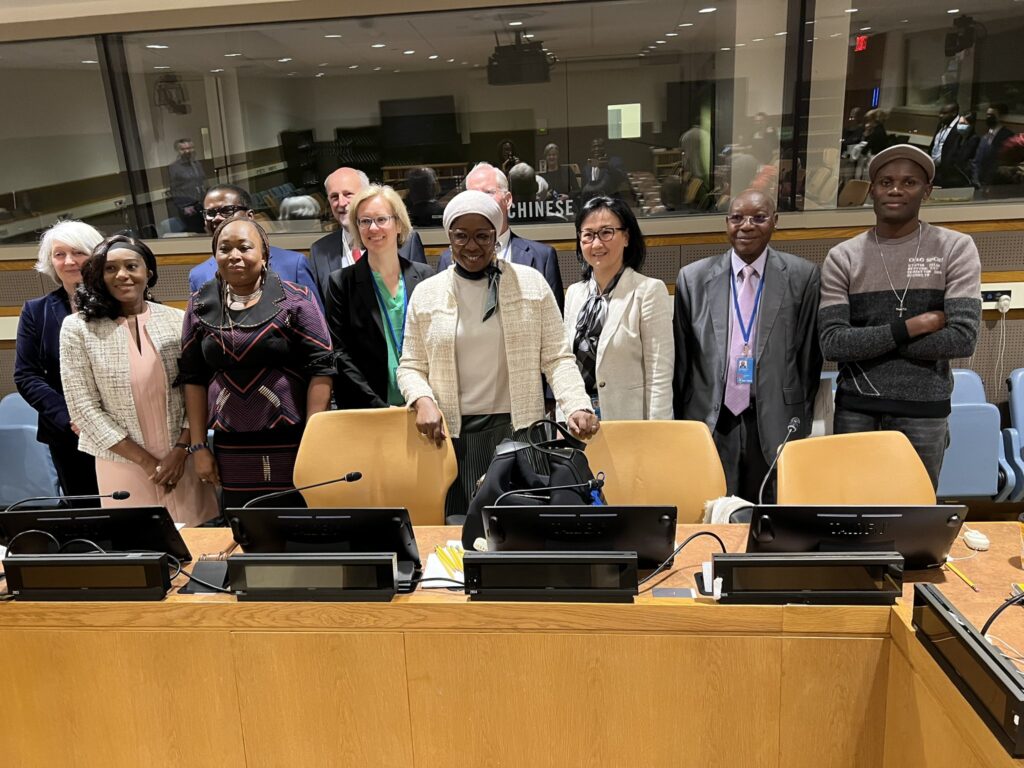
However, prevention is far superior to cure; I would like to see the discussion of legalising abortion on next year’s agenda. Despite some recent progress, most African countries have restrictive abortion laws and the majority of African politicians oppose it. Because unintended pregnancies are so high in Africa, I view it as not just a woman’s personal right, but one solution to our growing population.
I challenged the delegation from my own country, Uganda, on this question at a side event, but didn’t receive a satisfactory reply.
providing the choices
As someone who a single mother raised, I recall her often regretting why she had given birth to us. And I’ve seen young girls and women put children in the garbage to be kidnapped by those with money.
As long as so many African women have an unmet need for modern family planning, we will continue to see tragedies like this. We need more contraceptive methods in place and more freedom for people to use them so that our sisters and daughters can only have children when they truly need and want them, rather than being forced to do so. In the end, no one cares if you suffer with your child. Most of the time, girls’ futures and dreams are lost in this manner because they have no choice but to think about how to raise a child.
With climate change ravaging the entire continent, we need so to be brighter than ever before.
It was an amazing experience to attend the Commission, and I thank Population Matters for giving me the opportunity. Next time, I hope to be able to speak, and not just ask questions!
_________________________________________________
Nyombi Morris is an environmental and justice activist, Population Matters Choice Ambassador and winner of a Change Champion award.
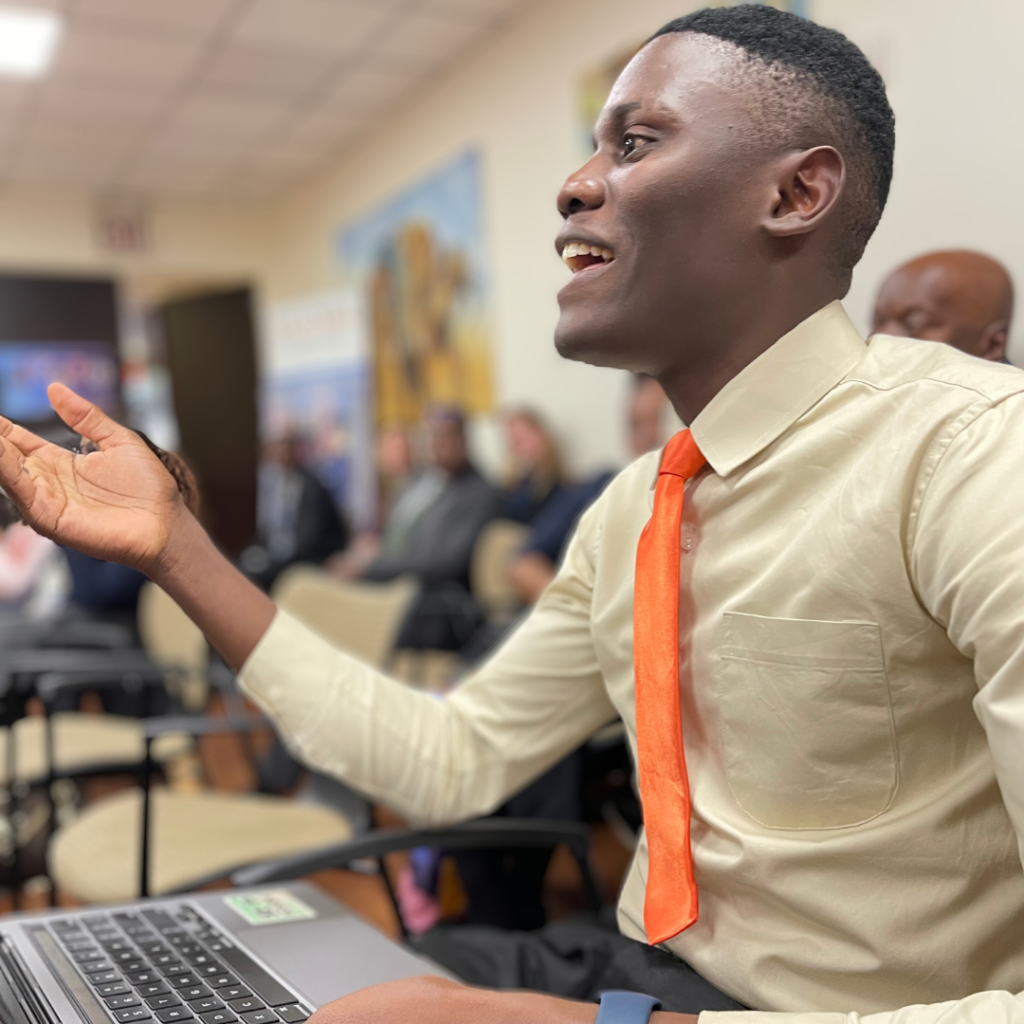
Guest blogs do not necessarily represent the views of Population Matters.

